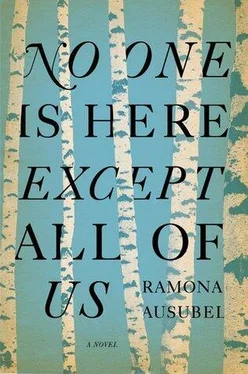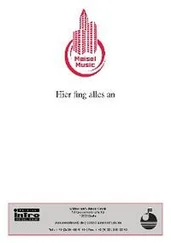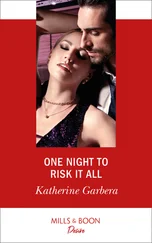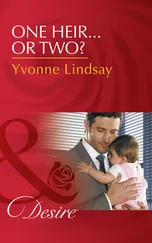I took the note and put it under my pillow. I tried again to smell my sister on that pillow and could not. I tried to smell myself on that pillow and could not. I rubbed my body against the rough cotton sheets, turned around and around in the bed. I spit up and down it. Rubbed the spit in. This time, my nose pressed to the sheets, the bed was full of my own mouth’s bitter scent. It was small, but it was proof of my miserable existence. I fell asleep imagining the note growing under my pillow, growing into a tree, branching out into the room, outgrowing the ceiling, outgrowing the reborn world. If I could climb it, I might reach a place high above the cloud cover of this weary, cold sorrow.
It is a beautiful day,” the saddlemaker said to me. “We have a daughter and she is you and the day is just waiting for us.” His thin fingers whispered across mine.
I was far, far away, having left only one thing behind: my body. I put on the mask of a smile.
On the stove a pot boiled furiously. Something salty foamed down the sides. “I think the water is boiling,” I said. Kayla did not so much as turn around to look. She explained that my father was going to work but not to worry because this would be the most beautiful day of my life so far. And tomorrow would be an even better day — and forever after, on like that. Kayla was so excited she choked on her tea. Her big face turned red while she coughed. She kept trying to excuse herself, but all she could manage to get out was “Ex, ex, ex.”
Hersh stood up to pat her on the back. “Hush,” he told her. Kayla blew her nose and wiped her cheeks, striped by tears.
“Can I hold you on my lap?” Kayla asked me through a cough. “Can you be my baby?” My blood stopped. My fingers tingled with the loss of it.
“Do as your mother asks.” Hersh nodded, but I could tell he was worried. He tipped me out of my chair and lifted me up. “The pot is boiling over,” I said, this time meaning my heart. “Thank you,” he said, smiling back. He placed me on Kayla’s doughy lap, where I was awkward and too big, where my legs had no place to fall and my head rolled around.
“This beautiful baby is my baby,” Kayla said, trying to rock me, pressing me into her large breasts. Her face was still splotchy from her coughing fit. “Say coo. Say goo. Like a baby.” I was quiet. “She doesn’t want to talk, my baby doesn’t want to talk. She just wants me to hold her in my arms, because I’m her mother and I love her the most out of anyone in the world and she knows that.”
Someone began banging on the door. My heart leapt. My true parents, come to take me back. But when Hersh opened the door, I could see from the shined and pointy shoes that this was no savior. It was the widow, taller than any man in the village and with a voice that sanded down your ears. Her body was all legs. She was like two old trees that had grown together in a brief love affair. Her arms were stiff branches and were always being waved around.
“We have no time to waste. This child might already be too old to teach. Look at her — you can tell just by looking at her that she can’t sing. She can’t sing one note. I might as well give up now.”
“I’m paying you,” Kayla reminded her. “I am paying you to teach her to sing. She is going to be a star.”
“ She’s teaching me to sing?”
“I’m a saint. I’m doing God’s work in this farce of a world. He will bless me and love me,” the widow said to herself.
It had never occurred to either my aunt or uncle that I might need some sort of talent. They had gathered their gold coins together, enough to pay for the lessons, and these coins were polished and shining and it seemed impossible that they would not transfer themselves into notes as golden, as bright, as beautiful as the coins themselves.
“Wait. Do we know about opera?” Hersh had asked his wife, not wanting to break the rules of a world that had provided them with their dearest wish.
“I know about the opera,” Kayla insisted. “Look, I don’t have time to waste. My daughter has to learn to sing immediately if she is to have a chance. Immediately.”
Alone together in the sitting room, the widow said to me, “You have very little chance of doing well.” The red velvet couch looked child-size under her.
I said, “I don’t know anything.” It was the truest statement I had ever uttered. I was sitting on a chair opposite her, watching her cross and uncross her tremendous legs.
“You’re telling me.”
The widow put the leather case she had been carrying down on the rug next to her chair and took three things out of it: a bottle of vodka, a large glass and a stick.
“Okay,” she said to me, “go ahead and sing some notes.”
“Some notes?”
“Sing a song, sing anything. Make noise with your mouth.” She poured herself a glass of vodka and sat back, crossed her feet at the ankles and drank. “That is good,” she said to her glass, “that is wonderful.” She looked at the child in front of her, picked up her stick and waved it up and down. “Sing! La-la-la!”
I creaked out a few notes, low to high, and the widow said, “That was terrible. Again,” and I creaked out a few more notes, high to low, and the widow said, “That was terrible. Again,” and I tried again, and again until the widow said, “I do not deserve this,” and laid her head back against the high back of the couch and fell asleep. The stick reclined on her lap like a pet, like a loyal kitten, and she kept her hands over it lovingly while she snored. I sat down on the floor and waited. I petted the rug. I looked at the shadow where a grandfather clock must have stood, its shape darker than the rest of the sun-faded green wallpaper. I imagined that clock filling with slime at the bottom of the river. I listened to the absence of my own song. Dogs barked and howled in the distance, cries they did not have to learn and practice but knew automatically, just by being alive as dogs.
In the evening Hersh came home and we forked dark bread and dark meat while Hersh and Kayla drank dark wine. I ate little and spoke less. Hersh hoped I would soon not look so stunned. He asked me, “Do you like chocolate? Do you like cake? Do you like cookies? Do you like kittens? Do you like horses?” in a stream, which I answered all at once—“Everyone likes those things.”
“Then name one thing only you like,” Hersh said.
I thought about it. “I don’t know,” I said, meaning it.
“For example, many people like babies, but don’t like mud… or rain.”
“I do like all those things.”
“Well, then you must be a happy girl.” Hersh laughed with a wave to the wet windowpane. “Very happy!” I took stock of how I felt in that moment, a half-eaten piece of meat on my plate, my feet in a pair of socks, sitting in a chair too tall for my toes to touch the strange new floor. All the mud was outside or trapped in the tread of shoes at the front door, while the only rain I could see was hanging limply on the glass. Was this what very happy felt like?
Kayla put down her wineglass, empty, and interrupted the conversation. “Can Lena sit on my lap?” she asked.
“Again?” Hersh asked.
“She is my baby.”
“I’m not a baby,” I said. “I’m eleven, going on twelve.”
Kayla picked me up, sat back down and began trying to shrink me by curling each limb up. I felt like a bug, tucked into itself. My feet, pressed into her leg, made a dent in that dough. Kayla’s eyes narrowed. “You are the smallest. No one is smaller than you. That means you are the baby. I will make you be…”
Hersh interrupted his wife with a desperate stroking of her shoulder. “Hey,” he said. “We are really lucky. Let’s be careful. Plus, a baby isn’t in voice lessons yet,” Hersh said, trying to reason.
Читать дальше












